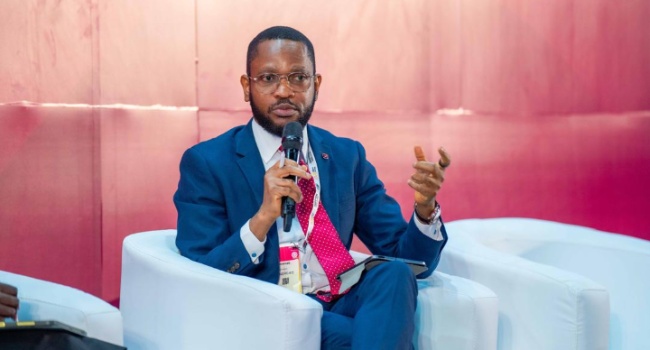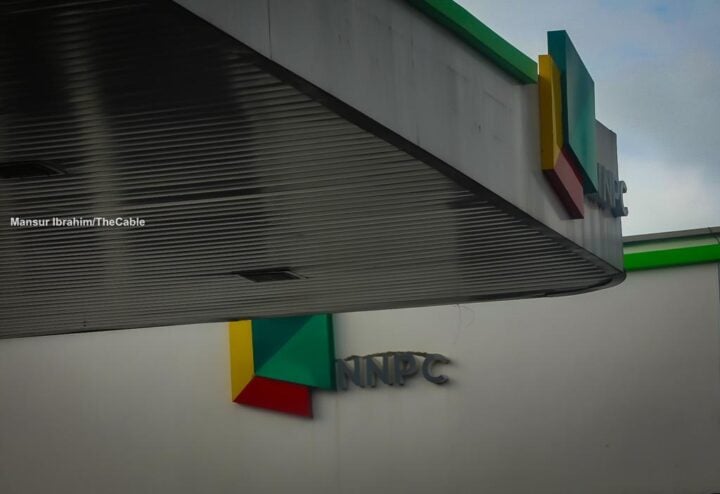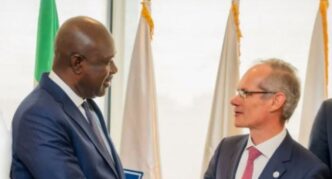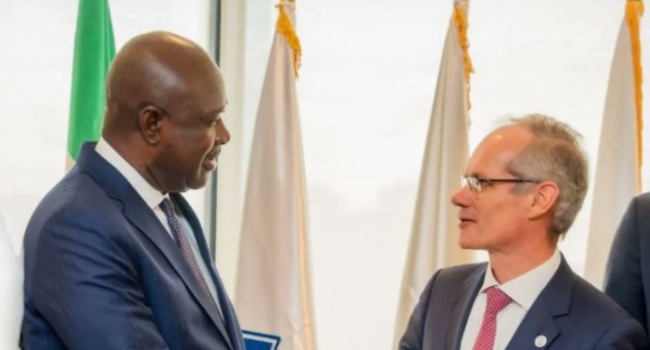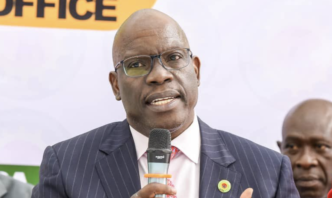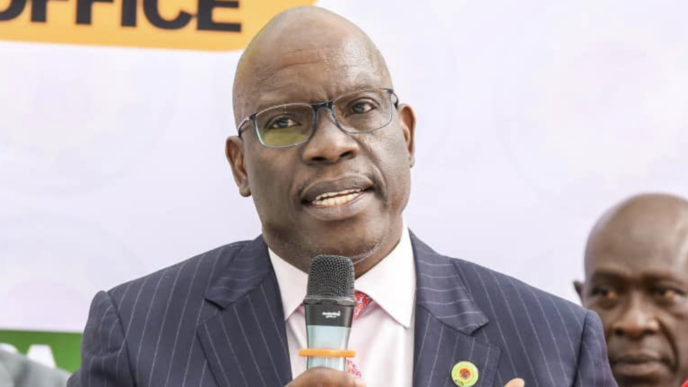Samuel Nwanze, executive director and chief financial officer (CFO) of Heirs Energies, has called on the federal government to provide financial incentives, tax breaks, and subsidies, to drive renewable energy adoption.
Nwanze spoke during a firechat session at the Nigeria Energy Leadership Summit in Lagos on Wednesday.
“Stronger government support, including financial incentives, tax breaks, and subsidies, is needed to drive renewable energy adoption,” he said.
The CFO also emphasised the need for clear policy frameworks to provide certainty around tariffs and demand, thereby attracting long-term investments.
Advertisement
“Increasing grid stability, expanding transmission infrastructure, and adopting energy storage solutions are essential for integrating renewable energy into the national grid,” he said.
“The government must also foster international partnerships to accelerate technology transfer and renewable energy deployment.”
Speaking further, Nwanze asked the government to implement innovative financing mechanisms, including green bonds and blended finance, to accelerate the development of solar and other renewable energy projects in Nigeria.
Advertisement
‘FINANCIAL INSTITUTIONS NEEDED TO FUND ENERGY TRANSITION’
Additionally, he underlined how customised financial solutions can mitigate project-specific risks and draw in investment.
Nwanze underscored the critical role of financial institutions in closing the funding gap for Nigeria’s energy transition plan (ETP).
“There is no one-size-fits-all financing solution for renewable energy projects,” Nwanze said.
Advertisement
“At Heirs Energies, we engage with investors to assess project risks and structure financing in ways that mitigate these risks while attracting capital. Nigeria was the first African country to issue a green bond, and this highlights our potential to leverage innovative financing mechanisms for sustainable development.”
He stressed the need for an integrated approach within the renewable energy value chain, calling for better collaboration among key agencies such as the Nigerian Content Development and Monitoring Board (NCDMB), the Rural Electrification Agency (REA), and the Nigerian Renewable Energy and Energy Efficiency Association (NREEA).
“Quality needs to be ensured cohesively across the sector. We must align all players within the value chain to achieve targeted results,” the CFO said.
“An effective implementation and monitoring framework is critical because, without it, most government policies will not deliver the desired impact.”
Advertisement
He also highlighted the importance of local content in renewable energy development.
“The NCDMB has made tremendous achievements in oil and gas, and these can be replicated in the renewable sector,” Nwanze said.
Advertisement
“Through capacity building, local manufacturing, and research & development, the board’s expertise and the Nigeria Local Content Act can be instrumental in developing a sustainable renewable energy sector.”
Also, the CFO outlined key areas requiring investment to achieve Nigeria’s energy transition goals, including large-scale renewable energy projects, off-grid and mini-grid solutions for rural areas, and decarbonising the power sector.
Advertisement
Nwanze also noted that meeting clean cooking needs alone would require $7.5 billion by 2030.
Advertisement
